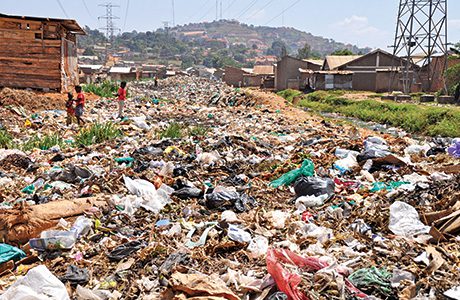A new report quantifies the scale of the global health emergency presented by open dump sites, declaring that the problem is escalating in seriousness.
Published by the International Solid Waste Association (ISWA), the report ‘Wasted health, the tragic case of open dumps’ demonstrates how the problems of open dumpsites experienced in the developed world 40 years ago still exist in poor and emerging countries but are being compounded by unprecedented new issues. These include the unregulated accumulation on a massive scale of discarded electronic devices, medical waste, and animal carcasses, which are routinely burnt.

While the risk of disease and illness to millions of people living in the immediate vicinity of open dumpsites is cause for concern in its own right, the impact of the gases and toxins being released into the atmosphere by burning the waste has global consequences. The report concludes that without a coordinated response to the issue through a global alliance of organisations capable of delivering real change, the problem will only worsen and quickly.
David Newman, ISWA President, said: “The recommendations of this report are clear: the international community has an urgent task ahead in closing waste dumps globally, for the sake of populations affected by them, because they live in or near them, but also because all the world’s people are breathing in the toxins released by burning on open dumps. And the greenhouse gas emissions involved are huge too, and unless we act, the growth of open dumping is inevitable.”
Research has already proven that exposure to open dumpsites has a greater detrimental impact on a population’s life expectancy than malaria. Researchers analysed 373 toxic waste sites in India, Indonesia and the Philippines, where an estimated 8.6 million people are at risk of exposure to lead, asbestos, hexavalent chromium and other hazardous materials. Among those people at risk, the exposure could cause a loss of around 829,000 years of good health. By comparison, malaria in these countries, whose combined population is nearly 1.6 billion, causes the loss of 725,000 healthy years.
Open burning and animal feeding increase the health risks substantially, the first by direct emissions of dangerous pollutants into the atmosphere and the second by transferring the pollutants to the food chain.







